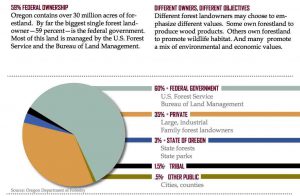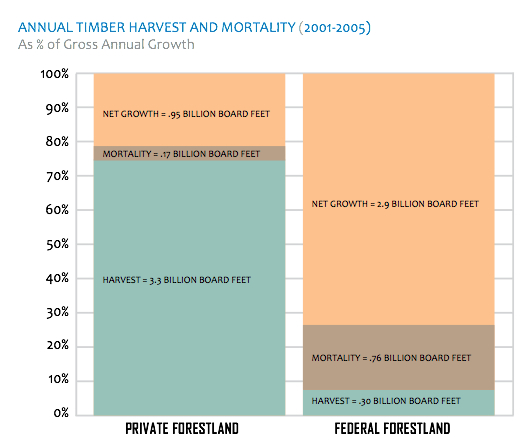 Last week, in a letter to the Herald & News editors, someone commented that:
Last week, in a letter to the Herald & News editors, someone commented that:
“[Linthicum] never seems to use the word ‘we’, but generally expresses his personal feelings toward issues and starts every objection with ‘I’.”
Frankly, I find this odd, because, surely, my objections belong to me. While various individuals might agree, or disagree, with my positions, I am voicing them because they are mine. I see no problem with owning my opinions as my own.
Each of us as an Individual
We are all different and we all carry different ideas. We are different in height, weight, body-type, talent and skill. We each come from different educational backgrounds; we have different life experiences, families and, hence, different perspectives.
More than likely each of us ate lunch yesterday based upon our own individual preferences. We each weighed several factors differently. One factor might be our own likes and dislikes. Another might be our family heritage, or cost and time constraints. We may even choose differently based upon who is present or who is missing, or what events were scheduled for later in the afternoon. Each of these represents our potential individual choice that is based upon free and voluntary preferences combined with competing options.
Would it be fair for someone to assert, “We object to pepperoni pizza!” because the one individual speaking preferred oily anchovies, instead? Obviously – No.
Now, if this is true for something as insignificant as lunch, how true is it for the more complex issues associated with county government?
Underlying Idea
However, the more relevant issue isn’t the use of the word “I”, or “we” but it is the underlying collectivist idea. The implication, in the original complaint, is that the collective’s voice is more powerful than the individual’s voice. This claim is false and is a typical leftist tactic for getting individuals to bow to the forces of political correctness.
This is why the 1st Amendment to the US Constitution guarantees that, “Congress shall make no law… abridging the freedom of speech, or of the press; or the right of the people peaceably to assemble…”1 These rights belong to the individual, not the state, and are collectively referred to as securing the “Liberties of Conscience.”
The false notion, that your personal voice is irrelevant, should be an anathema to everyone who values their personal liberty and freedom.
However, be forewarned, this pressure, for the recognition of the collective good above the voluntary and personal character of an individual’s right to choose, is part of the collectivist’s dream.
The other irony with regard to this gentleman’s letter is that he sounds somewhat conservative. Yet, he has fallen into the statist camp because of the promised, yet undelivered, benefits of growing government programs.
It breaks out like this. Statists can be either liberal or conservative; either Republican or Democrat.
By definition, a statist adheres to statism which is the, “principle or policy of concentrating extensive economic, political, and related controls in the state at the cost of individual liberty.”2
Therefore, both conservatives and liberals can be statists. The only requirement is that they support an ever-larger government paid for by ever-increasing taxes.
An Illustration
Here’s an example using “public safety” or “law and order” as an illustration.
The liberal statist will seek to alleviate the circumstances that caused the “troubled-youth” to run afoul of the law. The solution might be a War on Poverty, a No-Child-Left-Behind education policy, work-force training, or even Midnight Basketball. Note, all of these programs require administration, implementation, management, statistical analysis and ever-increasing tax dollars.
Meanwhile, the conservative statist argues for tougher jail sentences for the “low-life thugs.” This will include more police officers, more prisons, more facilities and programs, along with more parole and probation officers. Note, all of these solutions also require administration, implementation, management, statistical analysis and ever-increasing tax dollars.
The problem isn’t that some kids won’t be helped by some of these solutions, regardless of which ideology propagates them. The problem is that the central planner cannot possibly know which kid likes anchovies or pepperoni, or which kid is truly criminal. These one-size fits all programs are costly and inefficient. More often than not they are a drain on the free economy and they often produce more long-term private harm than public good.
The long-term harm stems from the loss of individual, family and neighborly responsibility. The State assumes more control through these seemingly good efforts but, in essence, also becomes the new nanny. Parents slowly allow the newest program to help them solve problems with their children. It becomes much more than a parenting helpline because every additional State program strengthens the tacit assumption that it is the duty of the State to deal with all these evils to secure untold public benefits.
As the power of the administrative organization is enlarged, there is a corresponding decrease in the power of the taxpayer. Over time it becomes harder to constrain the growth of these bureaucratic programs. Additionally, the multiplication of careers opened by this developing bureaucracy, tempts others to favor its growth.
These ideas also get couched as being “good for the economy” due to the new career employment opportunities that spring up. Unfortunately for the taxpayer, these new jobs develop in public employee unions that have costly and unfunded PERS benefits tacked on. Every job created in this new State sector drains the equivalent number of jobs from the private sector. There is no net gain, but the loss of individual and family prosperity will have a greater impact across the social fabric of the community than the narrowly focused bureaucracy that gets enlarged.
Worse still, bureaucrats use taxpayer funding to promote their program. Candidates for public office also promote these empty promises because they sound so good. I refer to these as “empty promises” because we have spent trillions in our various wars on poverty, drugs, education reform, swat teams and prisons with no discernible statistical success.
And finally, the media, ever responsive to popular new programs, strengthens these ideas by lending them air-time. Unfortunately, the opposing view finds less media acknowledgement because it appears that the counter-opinion doesn’t have a master plan.
They do, however.
The Solution
The solution is the plan laid out in the Declaration of Independence:
“We hold these truths to be self-evident, that all men are created equal, that they are endowed by their Creator with certain inalienable rights, that among these are Life, Liberty and the Pursuit of Happiness. That, to secure these rights, Governments are instituted among Men, deriving their just powers from the consent of the governed.”3
The individual is the primary focus of these inalienable rights. The individual is of first importance because all other cultural units arise from the individual, whether they are groups, organizations, counties, or states. These rights don’t originate from the State, rather, they are the entitlements which come from, “the Laws of Nature and of Nature’s God.”4
Individuals carry the weight, focus and cultural might of the community, not the nanny State. The individual has the right, responsibility and obligation to effectively manage these areas of his life. This can only be achieved by allowing for personal prosperity, liberty and individual rights. These rights are the foundation for independent action based upon the free-will of the individual and are the bedrock concepts underlying the basic tenants of our Nation.


 This is
This is  Obviously not. Men, teens, babies are not granted their inherent, self-evident, inalienable rights based on our Creators consideration of their size or potential size.
Obviously not. Men, teens, babies are not granted their inherent, self-evident, inalienable rights based on our Creators consideration of their size or potential size.





 As your Congressional Representative, I’ll take a different stand. Although a cup of tepid soup might help a starving soul, our Federal legislators shouldn’t be working the ladle, nor forcing us to accept such bare-bones deals. Instead, they should allow us freedom to prosper, by opening markets and creating opportunities for success in the local economy, not in the halls of Washington.
As your Congressional Representative, I’ll take a different stand. Although a cup of tepid soup might help a starving soul, our Federal legislators shouldn’t be working the ladle, nor forcing us to accept such bare-bones deals. Instead, they should allow us freedom to prosper, by opening markets and creating opportunities for success in the local economy, not in the halls of Washington. Last week, in a letter to the Herald & News editors, someone commented that:
Last week, in a letter to the Herald & News editors, someone commented that: